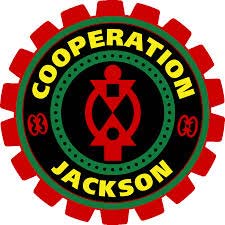Part of the Series
Solutions
Honest, paywall-free news is rare. Please support our boldly independent journalism with a donation of any size.
Once home to some of the most violent racists in the US, Jackson, Mississippi is now a key training ground for self-determination and organized “people power” throughout the South. From May 2 through May 4, 2014, activists, organizers and fellow revolutionaries from all over the world gathered at the Jackson Rising: New Economies Conference at Jackson State University. An estimated 500 people participated in some or all of the conference.
The primary objective of such an assembly was “to educate and mobilize the people of Jackson to meet the economic and sustainability needs of their community,” and to share with others how such strategies can help produce the radical change oppressed communities will need to survive within the current global capitalist crisis. The event was organized by the Jackson Rising Organizing Committee and was held at the Walter Payton Recreation and Wellness Center, where students and community members were welcomed alike. The spirit of resistance and self-reliance filled the air.
As an opening, the Federation of Southern Cooperatives provided a warm welcome and an insightful introduction to the local cooperative movement there in Jackson, Mississippi, outlining how their efforts have been a form of resistance and an assistance in providing the people’s needs. The Southern Grassroots Economies Project (SGEP) offered an intense overview on why the cooperative movement has begun to blossom and take form throughout the Southern Black Belt, highlighting how public policy can actually support and finance such grassroots efforts. Regional activists and organizers learned firsthand how the SGEP has been working diligently since 2011 to “build a Southern economy rooted in self-reliance, solidarity, community ownership and meeting human needs rather than maximizing profit.”
Black Workers for Justice and a host of union activists expressed the importance that strategies for worker’s rights coincide with burgeoning worker-owned cooperatives, and how in hindsight, such forces actually strengthen one another.
The Rosa Luxemburg Foundation sponsored a community workshop presenting four case studies inspired by Argentina’s cooperative movement. Omar Sierra, deputy consul general of Venezuela in Boston highlighted the redesigning of communal territories in Venezuela through participatory planning. Manuel Matos, representative of the Afro-Descendant Community Council of La Toma [Colombia], shared how Afro-Colombians are building ties for land autonomy and participatory governance. Mazibuko Jara, of Amanda! Magazine and Alternative Information Center introduced conference participants to how the cooperative movement is resisting the rise of neocolonialism in South Africa.
Black Arts Movement poet and pioneer, Askia Toure, was in attendance, along with representatives from Black Left Unity Network. The Malcolm X Grassroots Movement was also there, accompanied by world renowned Hip Hop emcee, Brother Ali. Guest speaker and long-time union organizer, Saladin Muhammad outlined how Black workers in the US South are extremely underpaid, unprotected, and how their rights are completely ignored in a region that claims the “right to work” without union representation.
A call for independent institutions
The main political orientation of this conference was that the working class should no longer depend on capitalism to provide for our basic needs. How can we, if it’s failing us from every angle? Speakers and cultural artists emphasized that freedom fighters have to assist the people in building institutions of liberation, and implementing practical strategies that promote autonomy from the capitalist system. Building cooperatives was stressed as an alternative to corporate grocery chains to supply oppressed communities with fresh fruits and vegetables. Educational cooperatives were presented as a working model to educate our children in a manner that enriches both them and society.
Organizers stressed that the task at hand now is working to construct economic and social networks that serve the oppressed rather than cater to the elite. The question is how do the people begin to provide themselves with adequate healthcare? How do low-income and marginalized communities create sustainable employment with living wages for themselves? How do underserved communities become their own solution to dilapidated housing, food deserts and waste management? How can communities affected by the school-to-prison pipeline combat such practices through participatory planning and self-reliance? How do communities protect themselves from police departments that terrorize rather than “protect and serve?” The fact is, the capitalist system and its various layers of control and exploitation will not stop until we make it stop! While issuing demands and raising voices is necessary, the harsh reality is the needs of the people have continued to be ignored.
Low-income oppressed communities need more than free newspapers, pamphlets and open access to political forums. In order to truly empower those who are marginalized, freedom fighters must be engaged in the work of providing basic survival needs including food, clothing, shelter and community safety. True, mass marches and political protests are very much so needed, but it will take another kind of mobilization to toil the soil and feed hungry children. It will take more than film screenings to help provide employment for those who have been incarcerated. Such developments require the collective application of practical skills, knowledge and community-based planning. Capitalism couldn’t care less about the needs of the oppressed. Hard work, creativity and revolutionary ingenuity can help lay groundwork for oppressed communities to begin meeting their own needs – creating their own modes of child care and transportation, manufacturing and apparel.
Within the capitalist structure, self-reliance among marginalized communities is a critical form of resistance. Limiting the power and impact capitalism and its corporatocracy possesses over our everyday lives is one of the first steps to building a “People’s Power” Movement. These points were recurring themes among organizers throughout the conference.
The weekend session concluded with a rousing tribute to revolutionary and former mayor of Jackson, the late Chokwe Lumumba, as his son, Chokwe Antar Lumumba chanted: “Free the Land! Free the land! Free the land by any means necessary!” The spirit and legacy of former Mayor Chokwe Lumumba, who won the mayoral campaign promoting cooperatives as part of building people’s assemblies, resonated throughout the entire conference. What the Jackson Rising: New Economies Conference informed and reminded the movement is that oppressed communities must liberate themselves. #JacksonRising was a reminder that most underserved communities already possess the skills, labor and resources needed to improve their quality of life, and that we as revolutionaries must not only believe that, we must also lead the charge.
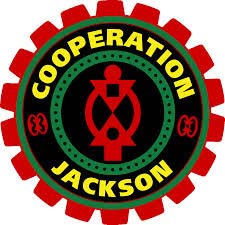
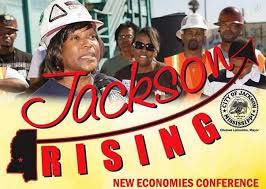
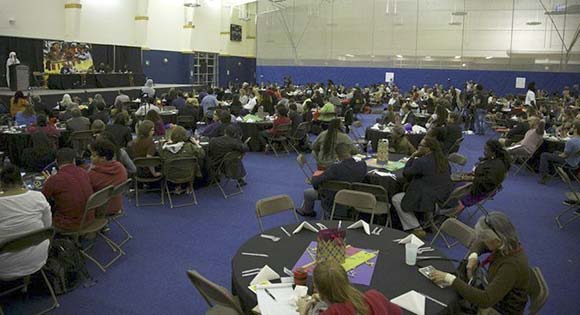
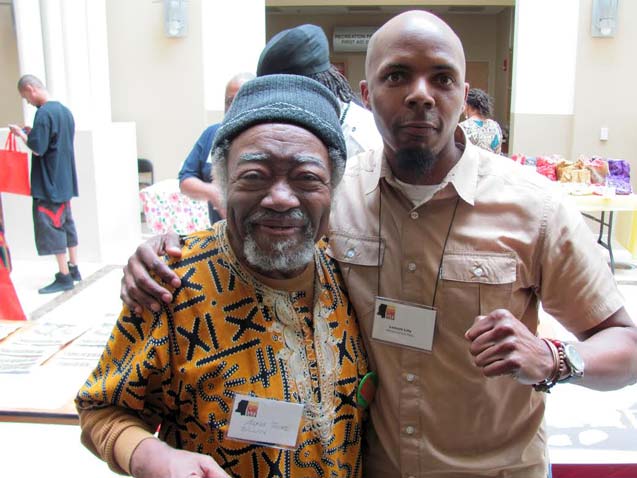
Press freedom is under attack
As Trump cracks down on political speech, independent media is increasingly necessary.
Truthout produces reporting you won’t see in the mainstream: journalism from the frontlines of global conflict, interviews with grassroots movement leaders, high-quality legal analysis and more.
Our work is possible thanks to reader support. Help Truthout catalyze change and social justice — make a tax-deductible monthly or one-time donation today.
